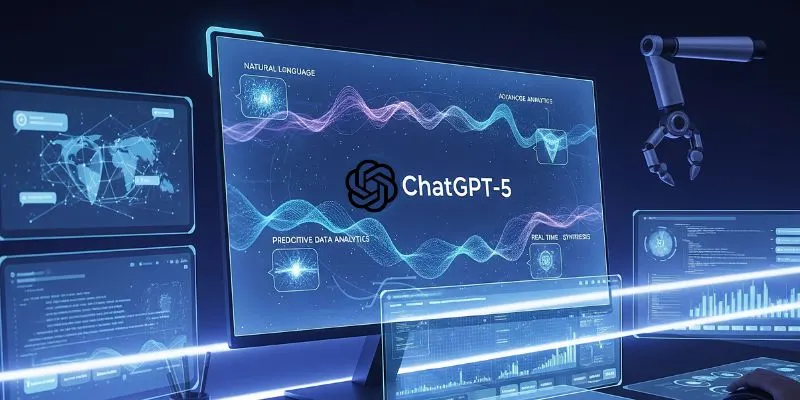By futureTEKnow | Editorial Team
The world of engineering is on the brink of a transformation, and Foundation EGI is leading the charge with its recent $23 million Series A funding round. This milestone marks a pivotal moment for the company as it accelerates the development of the world’s first Engineering General Intelligence (EGI) platform—a solution designed to tackle some of the most persistent bottlenecks in manufacturing and product development.
Traditional engineering workflows are plagued by disorganized specifications, siloed tribal knowledge, and outdated instructions. These challenges often lead to inefficiency, lost expertise, and slow innovation. Foundation EGI’s platform is built to turn these hurdles into opportunities by leveraging domain-specific AI that understands the nuances of engineering, from design to manufacturing and documentation.
Purpose-built large language models that blend physics-based context with engineering best practices.
A Domain-Specific Language (DSL) crafted for engineering, bringing the rigor and automation of software engineering to physical product design.
Seamless integration with CAD, PLM, and MES tools, enabling unified workflows and collaboration across teams.
Founded by a team of MIT researchers and industry veterans, Foundation EGI emerged from groundbreaking research that demonstrated how AI could transform engineering. The company’s mission is to codify how the world builds physical things, turning months-long tasks into minutes and scaling knowledge beyond individual experts.
The global manufacturing sector faces an estimated $8 trillion in inefficiencies due to outdated, manual workflows. Foundation EGI’s platform can convert even vague natural language into structured, engineering-grade documentation and code, slashing documentation cycles from months to minutes—up to 1,000× faster than traditional methods.
The oversubscribed Series A round was led by Translink Capital, with participation from RRE Ventures, McRock Capital, Escape Investment Management, Fifth Growth Fund, and returning backers like E14 Fund, UNION, GRIDS Capital, and Henry Ford III. This brings Foundation EGI’s total funding to over $30 million, underscoring strong industry confidence in their vision.
What sets Foundation EGI apart is its focus on creative AI for engineering. The platform isn’t just about automating repetitive tasks; it’s about building AI that can challenge assumptions, explore novel design spaces, and guide engineers toward breakthrough ideas. As co-founder and CSO Wojciech Matusik puts it, “We’re building AI that knows when to break the rules. The biggest leaps in engineering haven’t come from following best practices—they came from challenging assumptions”.
Foundation EGI is pioneering a new era where AI becomes a true partner in engineering—not just automating, but understanding, reasoning, and innovating alongside human experts. With this new funding, the company is poised to reshape how products are designed, built, and brought to market, setting a new benchmark for efficiency and creativity in the field

SpaceX aims to nearly double launches from Vandenberg in 2025, facing support from federal agencies but strong objections from the state and local communities.

Traditional Medicare will pilot AI-assisted prior authorization in 2026 across six states, focusing on high-risk outpatient services. Clinicians retain final say, but incentives and access concerns loom as CMS tests fraud reduction and “gold card” exemptions. Here’s what providers and patients should know.

OpenArt’s new “one-click story” compresses scripting, visuals, and edits into ready-to-post short videos—fueling viral growth and a fresh IP debate. We break down how it works, adoption signals, what’s next (multi-character, mobile), and practical guardrails creators and brands should follow to stay original and compliant.

OpenAI’s o3 swept the Kaggle AI chess tournament, defeating xAI’s Grok 4–0. The victory fueled the intense rivalry between Altman and Musk, reshaping AI benchmarks.

NASA and Google’s AI-powered Crew Medical Officer Digital Assistant enables autonomous diagnoses for astronauts on Mars missions, redefining remote healthcare for space and Earth.

Pinterest’s CEO confirms that fully agentic AI shopping is years away, as the platform invests in AI-powered tools to enhance discovery, inspiration, and personalized shopping experiences for millions.

Shopify’s new AI shopping tools are transforming e-commerce, letting agents and chatbots deliver smooth, personalized shopping and checkout experiences across platforms. Learn how these innovations reshape online retail.

Meta has acquired WaveForms AI, a startup pioneering emotion-detecting voice technology. Learn what this means for Meta’s AI voice ambitions and the future of AI audio.

Tracelight is revolutionizing financial modelling for finance professionals with AI-powered Excel tools that automate complex tasks, reduce errors, and unlock new analysis capabilities. Learn how this next-gen solution changes the future of spreadsheets.

China’s Lanyue lander completed its first major test, showcasing advanced engineering for safe, crewed moon landings before 2030. Explore how this milestone shapes the space race.

Microsoft rolls out GPT-5 across its Copilot suite, integrating smarter AI for enterprise and personal users. Discover new features, free access, and what sets this launch apart.

OpenAI’s GPT-5 is now live for all ChatGPT users. It brings faster, smarter AI with improved reasoning, expanded context, and safer outputs—marking a major leap in generative technology.
To provide the best experiences, we use technologies like cookies to store and/or access device information. Consenting to these technologies will allow us to process data such as browsing behavior or unique IDs on this site. Thanks for visiting futureTEKnow.